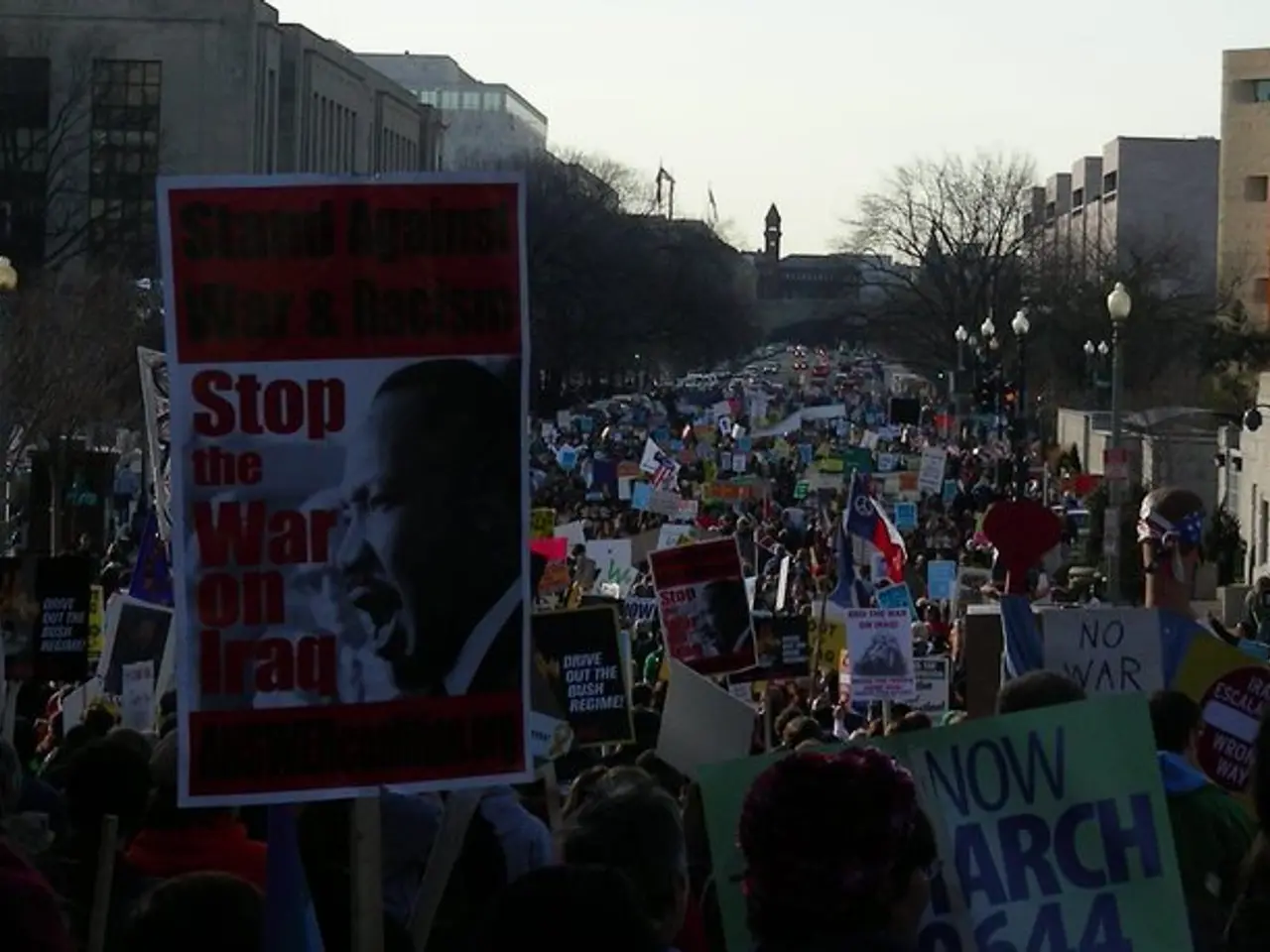Potential Scenario: Americans Emulating Iceland's Protest Methods
In the face of financial crisis and corruption, Icelanders took a stand, employing nonviolent direct actions to demand accountability and justice. The stakes were high in 2008, as Iceland's banking sector had collapsed, leading to a collapsed currency, high unemployment, and inflation.
However, Iceland's response was unprecedented. Unlike many other countries, Iceland negotiated a deal with the IMF that implemented a leftist economic strategy, leading to a dramatic recovery. This approach, contrasted by Nobel Prize-winning economist Paul Krugman, was a stark departure from the neoliberal policies adopted by other nations.
The Panama Papers crisis further fueled the Icelandic people's discontent. In April 2016, thousands gathered in Reykjavik, holding red cards in a symbolic gesture to call for the resignation of Prime Minister Sigmundur Davíð Gunnlaugsson. These mass protests, reminiscent of the "Pots and Pans Revolution" in 2008, were a response to the revelations that Gunnlaugsson had hidden millions of dollars in an offshore company connected to the collapsed banks of Iceland.
The immediate result of these protests was Gunnlaugsson's resignation on April 5, 2016. The political landscape also shifted significantly, with the Progressive Party losing seats and the Pirate Party gaining substantial support in the fall 2016 parliamentary elections. This reflects a broader distrust of the political establishment and a desire for more transparency and accountability.
The descendants of the Vikings provide a potential way forward for addressing oligarchic reality in contemporary democracies. Iceland's example of direct action, as demonstrated by Hörður Torfason, the leader of the Icelanders' uprising of 2008-09, could serve as a model for other nations seeking to achieve justice, equality, and individual freedom.
In fact, if 3% of the US population took similar action, it would represent 10 million people and potentially lead to a "political revolution" as described by Bernie Sanders. The spirit of direct action, as exemplified by Martin Luther King Jr., who believed that costly struggle is required to achieve justice, could inspire such a movement.
The Nordic countries, too, have a history of using direct action to prevent conservative attempts to implement neoliberal policies. In Denmark, for instance, a large and extended strike in 1986-87 was organised to prevent the implementation of such policies. Similarly, in Norway and Sweden, the left seized control of the banks, fired the senior management, and re-organised the financial sector in alignment with social democratic principles.
Matthew McIntosh, in his article focusing on the role of direct action in achieving justice, equality, and individual freedom, suggests that the Nordic countries offer a potential way forward for addressing oligarchic reality in contemporary democracies. According to a Princeton study, democratic pretense and oligarchic reality have been similar to that of the Nordics a century ago, highlighting the need for direct action and grassroots activism to bring about change.
Read also:
- Southwest region's most popular posts, accompanied by an inquiry:
- Discussion between Putin and Trump in Alaska could potentially overshadow Ukraine's concerns
- Massive 8.8 earthquake hits off the coast of Russia's Kamchatka Peninsula, prompting Japan to issue a tsunami alert.
- Tinubu's administration allegedly causing issues within every political party as Peter Obi's name surfaces - Obidient Movement asserts








